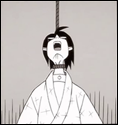|
Peas and Rice posted:Alright, let me try a non-confrontational, non-dickish answer. And pray tell, how does 4E's character creation get in the way of you remembering almost dying to goblins? Does the fighter's list of powers emit memory loss rays? I'm confused, because they shouldn't have any effect whatsoever. Illvillainy fucked around with this message at 20:13 on Jul 31, 2014 |
|
|
|

|
| # ? May 17, 2024 02:24 |
|
Peas and Rice posted:I didn't like 4th Ed because it felt like making an MMO character. In fact, it felt like the engine of a computer RPG, which substitutes character development in the imagination based on the shared experiences around the table (remember that time we nearly died fighting those goblins?!) with preconstructed development trees for classes. What sticks out to me here is that is that crunchy character development and shared experiences around the table have nothing to do with each other. There's no edition of D&D that I know of that actually integrates shared experiences around the gaming table into the actual mechanics, although I guess the "achievement" feats in Pathfinder come close; memorably almost dying to goblins makes no difference to how much time you had to waste picking feats out. One of the tragedies of the D&D fanbase in general, I think, is that well-meaning people honestly misinterpret what other well-meaning people honestly want, so for instance you are assuming here that I enjoy 4E because I like really complicated system mastery-intensive character generation (I don't, it's actually really tedious) and if I was uncharitable I could assume that you enjoy 5E because it shoves the fighter right into the trash where it belongs. In reality, I'd be overjoyed to play a version of 4E that had 5E's jump-right-in simplicity and I assume that you would at worst shrug at a version of 5E that gave fighters daily powers. The real problem is that game designers make this mistake, so people actually creating official Dungeons and Dragons content are honestly sitting there and thinking they're doing 4E fans a favor by writing up huge lists of interlocking feats or whatever.
|
|
|
|
There's nothing about 4E that acts as some sort of imagination inhibitor, and every time I hear someone talk about it like it does all I can think is that the problem isn't the game, it's that the people approaching it may not be as imaginative as they think they are.
|
|
|
|
Having a list of preset activated powers to choose from is crippling to the imagination, which is why spellcasters in all prior editions were always so helpless to improvise or use lateral thinking.
|
|
|
|
Ferrinus posted:What sticks out to me here is that is that crunchy character development and shared experiences around the table have nothing to do with each other. There's no edition of D&D that I know of that actually integrates shared experiences around the gaming table into the actual mechanics, although I guess the "achievement" feats in Pathfinder come close; memorably almost dying to goblins makes no difference to how much time you had to waste picking feats out. This is the post I would have made if I had the facility for eloquence. Really, the way powers work in 4E actually lend themselves more to imaginative play, because all that actually (and explicitly) matters are the [W] numbers and the key words. Your "fireball" can look like a big boom, or it can look like a thousand sparks spraying from your hands, or whatever. Unlike purely Vancian spells in other editions which are specific functions applied to the world - the actual way they look and feel is part of their Rules As Written.
|
|
|
|
Classes with a high level of differentiation. Sorcerers in 4e aren't just Wizards with a less varied repertoire (like they were in 3rd edition and are once again in 5th). Rangers are very different from Fighters without the need to leech Druid spells (like they did in in 3rd edition and do once again in 5th). drat, even classes that, fluff-wise, are very similar — Fighter and Warlord are both armored fighty dudes — play very differently from one another. Even classes of the same role are very different in actual play — although an archery Ranger and a Warlock are both ranged strikers, their toolbox and playing style are wildly different. A Swordmage isn't some lazy hack job of gluing some Wizard on a Fighter chassis — it's its own thing, and different from both Fighter and Wizard. And those are all AEDU classes. By grog logic, they "should" be the same. And yet they clearly aren't. I just imagine the 5th edition that good* designers would be able to build with all the system knowledge accumulated during the 4e cycle (like how to balance classes outside the AEDU frame). *It excludes Mearls, of course. Mearls was there to build non-AEDU classes — and Essentials** turned out to be a less than awesome (although much better than 3rd edition — or 5th). **Essentials sort of makes the same mistake that 13th Age does — the assumption that if classes are differentiated, non-casters must be low complexity because Nancy_Noxious fucked around with this message at 20:29 on Jul 31, 2014 |
|
|
|
Ferrinus posted:Having a list of preset activated powers to choose from is crippling to the imagination, which is why spellcasters in all prior editions were always so helpless to improvise or use lateral thinking. Maybe the way it's supposed to work is Fighters aren't supposed to have stuff like that so Fighter players are forced to use their imagination in order to have fun, for example imagining playing a better game where the time you almost got killed by goblins actually matters in some way. I think it's pretty great that in six years the bulk of 4E criticism still boils down to handwavey intangibles and bullshit guesswork like "it doesn't feel like D&D!" and "something something MMOs." It's not like there isn't plenty to actually criticize about 4E either! The 4E thread here is more than happy to point out 4E's numerous flaws when asked...feats and magic items are boring, crufty bullshit in desperate need of cleaning up, skill challenges have always been kind of a nebulous mess, there's bloat that could be trimmed down, higher level play starts to pull at the seams of the system math, and this isn't counting more specific criticism like the Psionic power point classes or a lot of the Essentials class design, etc.
|
|
|
|
Ferrinus posted:What sticks out to me here is that is that crunchy character development and shared experiences around the table have nothing to do with each other. There's no edition of D&D that I know of that actually integrates shared experiences around the gaming table into the actual mechanics, although I guess the "achievement" feats in Pathfinder come close; memorably almost dying to goblins makes no difference to how much time you had to waste picking feats out. Yeah, alright, that's fair. There's nothing about 4E's character design that in any way inhibits experiences around the table, and it's not part of the mechanics. I openly admit that this is purely a matter of taste for me: I prefer systems that allow me to sit, build in 20 minutes, and start playing. I KNOW 3.5/Pathfinder well enough that I can play and run it mostly by memory, which is why I don't mind it, but when I have to spend a bunch of time looking for some obscure feat or mechanic and the game slows down, it annoys me. quote:One of the tragedies of the D&D fanbase in general, I think, is that well-meaning people honestly misinterpret what other well-meaning people honestly want, so for instance you are assuming here that I enjoy 4E because I like really complicated system mastery-intensive character generation (I don't, it's actually really tedious) and if I was uncharitable I could assume that you enjoy 5E because it shoves the fighter right into the trash where it belongs. In reality, I'd be overjoyed to play a version of 4E that had 5E's jump-right-in simplicity and I assume that you would at worst shrug at a version of 5E that gave fighters daily powers. Right, I certainly don't begrudge anyone their like for 4th Ed - I just don't like it myself. In fact, I would never make fun of another gamer for liking one system over another - it's a big drat tent out there. All I can say is, 5th Ed feels more like the kind of experience my group and I like - quick play, knock some poo poo around, have a fun adventure, tell a story together. 4th Ed never clicked for me because it felt like building an MMO character, so we never got to the "knock some poo poo around, have a fun adventure" stage. For the record, I can't stand playing Fate because of the relationships between characters you're forced to develop at the beginning of the game too, so there's that.
|
|
|
|
Peas and Rice posted:4th Ed never clicked for me because it felt like building an MMO character, so we never got to the "knock some poo poo around, have a fun adventure" stage. The first edition of D&D I played was 3rd, which of course also felt like building an MMO character. Generally, you get backlash for making this criticism of 4E not because it's wrong but because it was really disingenuous in context - it'd be 3E (or future Pathfinder) fans who were complaining about all this crunchy, complicated chargen when that's what D&D was already like! The funny thing is, at the time 4e's feat and magic item rules felt like they were huge quality of life improvements and significantly streamlined. Getting more feats meant that your feat list in general felt less cramped, individual feats tended to be stronger, there was a trio of "big three" magic items that took care of your most important combat bonuses and so made itemization less of a headache on the whole... of course, after years of use, those systems are still completely mind-numbing, but actually less so than they were in the edition of the game that 4e replaced. So, basically, I agree with your complaints 100% but want to point out that the things you're complaining about aren't actually part of 4e's appeal and plenty of 4e fans hate them as much as you or I do. They're holdovers from 3e.
|
|
|
|
Peas and Rice posted:Yeah, alright, that's fair. There's nothing about 4E's character design that in any way inhibits experiences around the table, and it's not part of the mechanics. This is a fairer and more reasonable critique, but you understand that you're basically saying "I'm giving Pathfinder a pass on this because I've sat down and memorized all that poo poo" which is something you could apply equally to 4E. I'm pretty sure I could make a starting level 4E character without using the builder and it wouldn't take me more than 20 minutes, and that's including flipping through books. My take is that 4E is a game that in its present incarnation has a lot of bloaty dead weight but that the basic underlying character creation scheme isn't really all that taxing. You pick an array, you pick a race, you pick a class, then you pick four abilities and a feat. That's a level 1 character. It's not really super-involved unless you're literally poring over every book in the line, which is something that applies to all games with a lot of supplements. There are absolutely too many feats, I would say that 4E would be a better game without feats altogether, but ultimately 4E is no more demanding at chargen than a lot of other games and is actually quicker than most (I'd rather make 4E characters than Shadowrun characters). And also unlike 3E you aren't having to plan your build out 20 levels in advance.
|
|
|
|
Peas and Rice posted:Yeah, alright, that's fair. There's nothing about 4E's character design that in any way inhibits experiences around the table, and it's not part of the mechanics. Try FATE Accelerated sometime. You are literally not required to have any relationship with any other character, it's purely optional though they do suggest it as an easy way to bring the characters together. You can have characters ready and playable in five minutes or less, and that's not an exaggeration. Once you understand the core mechanics of the system (anything can be built as a character with its own stress track, skills and aspects, from a fire to a battlestation to a rabid eagle-wolf) you can create content for your game entirely on the fly. I understand what you're saying about PF/3.5, because I also had the rules nearly completely memorized, once upon a time, but having something memorized as rote memory doesn't mean it's simple or easy to learn.
|
|
|
|
Peas and Rice posted:I openly admit that this is purely a matter of taste for me: I prefer systems that allow me to sit, build in 20 minutes, and start playing. I KNOW 3.5/Pathfinder well enough that I can play and run it mostly by memory, which is why I don't mind it, but when I have to spend a bunch of time looking for some obscure feat or mechanic and the game slows down, it annoys me. Building a character in 3.5/PF takes about as stupidly long as it does to make a 4E character. If you're evaluating your limited 4e experience through the lens of your extensive 3.5 experience, then of course you'll get different results. Both these editions are bloated messes, but if you compare just PHB 3.5 to 4E you'll find it takes just about the same amount of time to make a character in either. edit: beaten.
|
|
|
|
I have to say I continue to not really understand the "is like an MMO" critique. What does this even mean exactly? Like I genuinely don't understand the point it's trying to make. What is it about 4E that's "MMO like" that other roleplaying games like Pathfinder somehow avoid? Is it really just "they have clearly differentiated class roles and those sound similar to MMO terminology?"
|
|
|
|
I assume it refers (in this case, anyway) to the fact that you have to do a lot of research and planning to make a powerful character, which is true but even more true of 3E/3.5E/Pathfinder.
|
|
|
|
I particularly don't understand how "you have to do a lot of research and planning to make a powerful character" is at all MMO-like. In every MMO I've played, you start by picking a class and a bunch of cosmetic poo poo. You don't start making mechanically significant permanent-ish decisions until you've played the game for a while.
|
|
|
|
Well, even if the decisions you make can be trivially unmade a lot of online RPG-esque combat games still require a lot of chargen strategy and system mastery. You can literally respec from fight to fight in Diablo 3 but there's still a lot of discussion about builds, optimal item loadouts, skill synergies, etc. I think back when 4E came out MMOs were a lot more likely to plunk a big scary talent tree down in front of you and then laugh at you if sixty levels later you chose +4% fireball damage instead of -0.5s ice storm cooldown. (Fireball damage? Four percent fireball damage? Get a load of this guy! Who even does that? Christ.)
|
|
|
|
Kai Tave posted:This is a fairer and more reasonable critique, but you understand that you're basically saying "I'm giving Pathfinder a pass on this because I've sat down and memorized all that poo poo" which is something you could apply equally to 4E. I'm pretty sure I could make a starting level 4E character without using the builder and it wouldn't take me more than 20 minutes, and that's including flipping through books. That's probably true, and the disconnect for me is probably the same I had when I held out making the shift from 2nd to 3rd: "I have all this poo poo memorized and I don't want to memorize new poo poo." It actually took me two years of playing every Friday night with a 3rd ed group because it was the only group I could find to actually make that switch. 5th Ed does feel a bit more like 1st/2nd with all of the dumb and senseless poo poo stripped out, and d20 mechanics instead of THAC0. quote:Try FATE Accelerated sometime. You are literally not required to have any relationship with any other character, it's purely optional though they do suggest it as an easy way to bring the characters together. You can have characters ready and playable in five minutes or less, and that's not an exaggeration. Once you understand the core mechanics of the system (anything can be built as a character with its own stress track, skills and aspects, from a fire to a battlestation to a rabid eagle-wolf) you can create content for your game entirely on the fly. I'll see if I can find a game of it at GenCon to try. I REALLY wanted to like FATE and my one experience with it was deeply negative because my personal character development style is so very different. quote:I have to say I continue to not really understand the "is like an MMO" critique. What does this even mean exactly? Generally that there's one "right" way to build a highly specialized character that does one or two things really well, and you need to plan for it, and there isn't a lot of room for flavor options that either don't go towards building the "best" character or even hamper building that "best" character. That's a problem with playstyles, not systems - but it seems that Pathfinder and 4th Ed both favor that style of play, to the point where the designers pander to it.
|
|
|
|
Ferrinus posted:I assume it refers (in this case, anyway) to the fact that you have to do a lot of research and planning to make a powerful character, which is true but even more true of 3E/3.5E/Pathfinder. Except you don't really because unlike its immediate predecessor it's really really hard to make a bad "trap build" character in 4E. Not all minmaxing is created equal. In 3E the difference between a well-researched character and picking whatever sounded cool was the difference between picking a Druid and dominating a huge chunk of the game and picking a Monk and being largely irrelevant. In 4E that capability gap is much, much smaller to the point that the only real "trap" options in the game got added late in its development cycle, unsurprisingly under Mike Mearls' direction. You're perfectly capable of picking a PHB1 Fighter, going "I wanna smash poo poo!," taking the powers with the biggest numbers and the biggest weapon, and going on to be an incredibly useful and capable character (outside of skill stuff maybe because 4E still had some lingering grognardisms, but baby steps I guess).
|
|
|
|
Kai Tave posted:I have to say I continue to not really understand the "is like an MMO" critique. What does this even mean exactly? Like I genuinely don't understand the point it's trying to make. What is it about 4E that's "MMO like" that other roleplaying games like Pathfinder somehow avoid? Is it really just "they have clearly differentiated class roles and those sound similar to MMO terminology?" I think part of it is presentation. The power cards (as in, the way powers were laid out in the rulebooks), with their bright colors and extensive formatting, were upsetting to a lot of people, specifically because they laid bare that what you were reading was in large part a technical document containing carefully arranged game rules. It came off as artificial, to people for whom the old-style D&D layout was natural. So it triggers an emotional response in people the same way we might get mad when a website we've visited for a long time changes its layout, or a program we're used to has a new UI. The unfamiliar is uncomfortable and discomfort is often met with hostility. This is why Next is going back to an "old-school" art and layout aesthetic (which I think looks really nice, honestly) and plainspeech rules text; it's less legible, but makes it easier to maintain the illusion that you're not reading an instruction manual.
|
|
|
|
Kai Tave posted:Except you don't really because unlike its immediate predecessor it's really really hard to make a bad "trap build" character in 4E. Not all minmaxing is created equal. In 3E the difference between a well-researched character and picking whatever sounded cool was the difference between picking a Druid and dominating a huge chunk of the game and picking a Monk and being largely irrelevant. Don't get me wrong, I agree. The pressure to plan and optimize in 4e was much less than the pressure to plan and optimize in 3e because the consequences for doing it poorly were far less harsh. Unless you deliberately anti-optimized (my fighter has STR 08, uses unarmed strikes, wears robes, and took Skill Training eight times) you'd basically be okay. Well... basically be okay. At low to medium levels, certainly. Someone joined my level 25 4e game with a monk recently and even though they actually have done all their research and maxed their attack stat etc. they're still kind of anemic when compared to the insane output of the warlock and fighter. Also, because all the dials and levers were right there out in the open, they were a lot more likely to occupy your focus - the more you're asking yourself whether 3W vs. Reflex is better than 2W + Daze vs. AC, the less time you're spending on characterization and story. Maybe playing Basic means you spend 1 hour on characterization and 10 minutes on chargen, while playing 4E means you spend 1 hour on characterization and 45 minutes on chargen rather than actually losing time for the former to the latter, but it's sort of lovely either way.
|
|
|
|
Kai Tave posted:I have to say I continue to not really understand the "is like an MMO" critique. What does this even mean exactly? Like I genuinely don't understand the point it's trying to make. What is it about 4E that's "MMO like" that other roleplaying games like Pathfinder somehow avoid? Is it really just "they have clearly differentiated class roles and those sound similar to MMO terminology?"
|
|
|
|
Peas and Rice posted:Generally that there's one "right" way to build a highly specialized character that does one or two things really well, and you need to plan for it, and there isn't a lot of room for flavor options that either don't go towards building the "best" character or even hamper building that "best" character. You're talking about the accumulation of mechanical boni that add up to a super-powerful one-or-two-trick pony. Okay. I can see that. I guess more generally you're talking about ignoring the fluff layer so you can drill down deep into the mechanics layer, instead of doing it the other way around. Given that you apply that complaint equally to both 3.X and 4e, I don't think anybody would disagree with you. There's an optimization gap between players who wring the system for all it's worth and those who dabble in the fun stuff, for sure. I think the common argument is that the gap is smaller in 4e than you'd expect in 3.X, primarily because a character of 'middling optimization' (e.g., suggested starting packages and a handful of flavor feats) still contributes heavily within his or her role. We can argue that the gap is infinitely small though and you can still validly take issue with its existence. Attorney at Funk posted:I think part of it is presentation. I think specifically what it laid bare was the system. You weren't 'encasing an enemy in ice' any longer, you were 'stunning' them and tacking on the 'cold keyword'. Those are status effects! Status effects are like in them there Furnal Fanterseas! We aren't just defining effects and poo poo willy nilly based on each and every individual spell, we've got keywords and uniform design and congruence across all the various systems. Basically the part that is like a videogame is the part where the system behaves like a designed system instead of a bunch of quirky stuff. Except the quirky stuff also describes a designed system if you look hard enough at it, but that always seems to be lost in translation. Mendrian fucked around with this message at 21:16 on Jul 31, 2014 |
|
|
|
Peas and Rice posted:Generally that there's one "right" way to build a highly specialized character that does one or two things really well, and you need to plan for it, and there isn't a lot of room for flavor options that either don't go towards building the "best" character or even hamper building that "best" character. To a lesser degree it is also true of previous editions, but due to a total lack of character customisation options, it basically means stuff like using a STR-CON-DEX array or making sure to memorize sleep or grease on first level. Mostly untrue of 4e (apart from putting a 18 into your primary stat), where even though many times there is a 'best' power, choosing any of the alternatives for flavor does not make the character ineffectual. Also, characters are baseline competent and after learning a few math fix feats (or receiving them for free from the DM as they are basically feat taxes), they can get away with choosing from the hundreds of racial, tribal, clan, skill boost, whatever feats for flavor much more than in 3e. Littlefinger fucked around with this message at 21:19 on Jul 31, 2014 |
|
|
|
Paolomania posted:It means that the vast majority of your character's identity and statistics are about their role in group combat, and the vast majority of game time is spent in group combat, not unlike an MMO where the vast majority of your time is spent in group combat. That is not to excuse 3E from falling into the same trap, but with balance and system mastery issues, but why can people not understand that alot of players want more out of a system than a way to exquisitely express a balanced combat role? Because if they want that then any edition of D&D is kind of a poor choice because D&D has historically been about delving dungeons, fighting monsters, and stealing loot. My general anecdotal experience is that people who talk about one edition of D&D being better for roleplaying than another are people who largely haven't played any RPGs but some form of D&D. It's entirely possible to play 4E as something more than an unending flow of combat encounters, I know this for a personal fact, just as it's possible to play 3E as a game of high political intrigue and courtly romance, but D&D as an elfgame institution has never really paid more than lip service to stuff that doesn't center around fighting and looting. If you want a game that offers more than that then you want a game that isn't D&D, and complaining that this version of D&D is worse than some other version of D&D at hypothetical roleplaying facilitation is silly.
|
|
|
|
Kai Tave posted:It's entirely possible to play 4E as something more than an unending flow of combat encounters, I know this for a personal fact, just as it's possible to play 3E as a game of high political intrigue and courtly romance, but D&D as an elfgame institution has never really paid more than lip service to stuff that doesn't center around fighting and looting. If you want a game that offers more than that then you want a game that isn't D&D, and complaining that this version of D&D is worse than some other version of D&D at hypothetical roleplaying facilitation is silly. Hilariously though, for a sizeable portion of grognards, any non-D&D game that tried to actually facilitate roleplaying mechanically was deemed a filthy storygame not worthy to be called an rpg.
|
|
|
|
Attorney at Funk posted:I think part of it is presentation. This is spot on. There was also a fleeting moment where it appeared that Next was going to be a repackaging of 4e the same way WHFRP3 went to hardcover books from cards. That moment was exactly when Monte Cook "invented" passive perception and people ate it up. Because it was the same drat mechanic, but now it came from community favorite Uncle Monte.
|
|
|
|
Kai Tave posted:It's entirely possible to play 4E as something more than an unending flow of combat encounters, I know this for a personal fact, There's not a ton of character defining stuff in D&D, period. I have as much or more non combat stuff on a 4e character than on a 1e character, yet nobody complains there's no roleplaying in 1e. 3e, otoh, falls into a weird pit where "roleplaying" = "taking non optimal fiddly bits." like, spending 3 skill ranks on Craft: Basket-weaving. Or fighting with a trident. Or statting up a half orc bard. Or taking Prone Shooter. It's like the game tries to give you mechanical implementations for role playing, so people forget they can roleplay without those fiddly bits. It's one area where 5e seems to be on the right track, with its inspiration mechanics.
|
|
|
|
Mendrian posted:I think specifically what it laid bare was the system. You weren't 'encasing an enemy in ice' any longer, you were 'stunning' them and tacking on the 'cold keyword'. Those are status effects! Status effects are like in them there Furnal Fanterseas! We aren't just defining effects and poo poo willy nilly based on each and every individual spell, we've got keywords and uniform design and congruence across all the various systems. Yeah, there's a body of jargon attached to 4e which, unlike past editions, you can't ignore or gloss over. Learning that jargon is a basic element of system fluency that the game asks of every single player. Past editions didn't have that to the same degree - fighter got the reputation for being the simple class because you could roll one and use it without having to pay attention or actually learn the game. Past editions tiered mechanical complexity along aesthetic lines* and by doing this coded which characters were for invested (smart) players and which ones were for detached (dumb, possibly girl) players. I think the lexical buy-in D&D 4e demands of people is too big, and I think the game is really tedious and cumbersome to play and make characters in. But at least it's fair in its tedium. It doesn't tempt me with 'here, do this, and you can free yourself from the stress of these unwieldy rules by sacrificing your ability to do anything cool or fun with them'. That's a lousy choice to offer people, and it's an especially lousy choice to offer people when it's set up to conflict with whatever fantasy things they think are cool. * Incidentally, this was always really bothersome to me. Why can't my friend play a powerful, tactically engaging fighter, and why can't I play a lazy brain-off Wizard? Even the guy who just prepares Fireball in every slot still has to play the tedious goddamn spellbook and spell slot accountancy game.
|
|
|
|
coeranys posted:Maybe you can just read Ed Greenwood's dream journal about all of the cool things an alternate version of he and his wife did. That will get you your Forgotten Realms fix, of other, more important people, doing all of the actual heroing. This exchange is just silly. Adventuring in pre-4E FR was never the side show its detractors made it to be. 4E only ruined FR if you think not-Egypt and not-Aztecs are essential elements of the setting, and it did nothing to stop the metaplot from moving forward.
|
|
|
|
Kai Tave posted:If you want a game that offers more than that then you want a game that isn't D&D, and complaining that this version of D&D is worse than some other version of D&D at hypothetical roleplaying facilitation is silly.
|
|
|
|
Paolomania posted:I agree, but I would also say that 4E dropped the pretense and a certain illusion of free-form play was lost (i.e. the illusive "feel"). 4E does "wing it using Ability Scores" just as well as any other edition, its just that other editions pretend to be better at it - and buying into this gives players that etherial sense that somehow the system is more open-ended. So basically the elusive "feel" of D&D is obfuscation and bullshit. I can buy that.
|
|
|
|
Mendrian posted:There's an optimization gap between players who wring the system for all it's worth and those who dabble in the fun stuff, for sure. I think the common argument is that the gap is smaller in 4e than you'd expect in 3.X, primarily because a character of 'middling optimization' (e.g., suggested starting packages and a handful of flavor feats) still contributes heavily within his or her role. We can argue that the gap is infinitely small though and you can still validly take issue with its existence. Totally, and there's a reason the most fun I've had with RPGs (apart from my ongoing PF game) in the last year have been systems like Old School Hack, Lady Blackbird, and even Dungeon Crawl Classics, because they strip all of that poo poo out and just give you some rules to adjudicate a story and some fighting.
|
|
|
|
It's the same problem I had with Final Fantasy 13 and Diablo 3: 4e cut out all the pointless obfuscating nonsense that got in the way of the same Core Experience that previous editions ultimately promised, but once it was laid bare, you just realize how much of the experience was made of pointless obfuscating nonsense, and how there's not really much left when you take it out. And then you can't go back to the old edition, either, after how transparent 4e made the bullshit. I liked 4e more than 3e overall, but I think 4e was more to blame for me moving on to DW and Fate.
|
|
|
|
Kai Tave posted:So basically the elusive "feel" of D&D is obfuscation and bullshit. I can buy that.
|
|
|
|
I think it's kind of hilarious that this revelatory experience was enough to cause people to lose their poo poo so hard that they're burning books and fleeing into an attempt to recapture the nostalgic past over it. It's like a painfully nerdy Lovecraft tale with storygames taking the place of the dreaded minorities.
|
|
|
|
ProfessorProf posted:It's the same problem I had with Final Fantasy 13 and Diablo 3: 4e cut out all the pointless obfuscating nonsense that got in the way of the same Core Experience that previous editions ultimately promised, but once it was laid bare, you just realize how much of the experience was made of pointless obfuscating nonsense, and how there's not really much left when you take it out. I had this exact experience. D&D 4e is by far my favorite edition of D&D, and it's the one that made me realize I don't actually like D&D that much.
|
|
|
|
ProfessorProf posted:It's the same problem I had with Final Fantasy 13 and Diablo 3: 4e cut out all the pointless obfuscating nonsense that got in the way of the same Core Experience that previous editions ultimately promised, but once it was laid bare, you just realize how much of the experience was made of pointless obfuscating nonsense, and how there's not really much left when you take it out. Holy poo poo. I feel like these last few posts have actually been kinda revelatory for me, too. This is exactly it. People are okay with playing a bad system if that system is presented in such a way that it hides its own badness.
|
|
|
|
Attorney at Funk posted:I had this exact experience. D&D 4e is by far my favorite edition of D&D, and it's the one that made me realize I don't actually like D&D that much. Yeah, it's the edition that turned me onto FATE.
|
|
|
|
Jack the Lad posted:This is exactly it. People are okay with playing a bad system if that system is presented in such a way that it hides its own badness. And appeals to them on an emotional, and is fun for them. Big tent and all.
|
|
|
|

|
| # ? May 17, 2024 02:24 |
|
Jack the Lad posted:Holy poo poo. I feel like these last few posts have actually been kinda revelatory for me, too. I suspect it's partly that, but partly also 'people are OK with playing a bad system when they know it well', and 'people are OK with playing a bad system when it's the only game in town'.
|
|
|


























